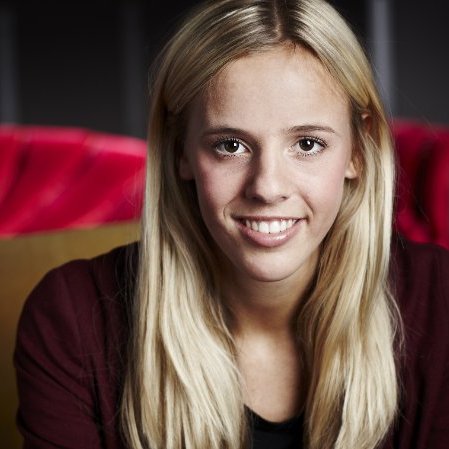Bringing Company Strategic Goals to Life
How Linn Nordlander, SHS '16, helped actualize company goals by conducting assessments and simulations during her internship at BTS Consulting.

Education: Bachelor of Arts, Psychology, Stockholm University; Touro College School of Health Sciences’ Graduate School of Psychology Master’s in Industrial-Organizational (I-O) Psychology
Internship: BTS, New York, NY, January 2016 – May 2016, Business Development Intern
When one of Linn’s Swedish professors recommended the U.S. for I-O Psychology programs, she began researching all the I-O programs in New York. “What caught my eye about Touro was the internship part—how practical it is, and how it applies theory to the real world,” she said.
Ironically enough, the Swedish native found an internship position at BTS - a global consulting firm founded in Sweden. Linn was accepted for a paid internship position in the business development department, where she assisted in delivering business simulation programs and assessments to help clients change the essential behaviors critical to their success.
“When companies launch a new strategy, 90 percent of the time what fails is that they can’t implement it in an organization,” explains Linn. “so what we do is try to implement that strategy among that company, and watch as they try to change their behavior in line with the new strategy.”
BTS conducts interviews with their clients to determine the state of the company at the moment. “We assess our client’s situation—what’s working, what isn’t, and figure out what the administrators and leaders want to change in the organization. We’d compare the way the company is running currently with the way they want it to be running. Then, based on the feedback and data our client gives us, we’d customize a training program for them which detailed how to successfully implement their desired goals.”
“Then, it’s simulation time. Our motto at BTS is ‘learning by doing.’ So during leadership development simulations, we’d go out to the client and have a one-to-two-day program at their office in which the critical management would simulate running a business with the new strategy already implemented. Working in teams, they’d practice decision-making skills, business acumen skills, and we’d observe them interacting with each other. The point of the simulation is for the company leaders to improve their self-knowledge and confidence so that they know how to act in a critical situation when it’s real life. Each business simulation is custom-made for each client,” Linn adds.
After the simulation is over, Linn would have the chance to offer her feedback along with her supervisors. “While we’d observe them in their simulations, we’d rate them to see how well they’re using our customized recommendations. We then communicate our feedback to the client.” Sometimes, BTS also does another follow-up, to see how their clients are acting in real life, after the simulation.
Linn had other responsibilities besides business assessments and simulations; she also helped develop, and implement, a standardized process to increase the rate of new sales. “We wanted to change our previous strategy of growing organically—existing clients bringing in new clients—to recruiting new names,” explains Linn. “So I would work on spreading our network by researching targets and help supervisors introducing BTS services, leading to more meeting opportunities with prospects and leads.”
Because Linn was BTS’ first in-house intern, there was no formal internship program in place when she came. She offered to create a more structured intern program: “I taught my supervisors how to create a job description for an internship position and how to motivate the new interns who came after me. I was training these new interns while we tweaked the new internship program internally, and on my last day, I presented the new onboarding material to my supervisors.
More so than her daily use of PowerPoint, Excel and Salesforce, Linn acknowledges that her I-O classes helped her be successful in every project—so much so that her supervisors wanted her to join the company full-time.
“In the new sales process I developed and implemented, a lot of it involved ‘resistance to change,’ she remembers. “A lot of employees had been doing it a specific way for a long time, and then I came along, a new intern. My classes at Touro helped me realize that this was a ‘resistance to change’ situation, so I used what we had learned in class about the concept to communicate with this employee to get them to work with me.”
So, how did she actually work it out? “My supervisor had told me earlier, “’Let me know if they’re not cooperating and I’ll take care of it.’ To me, that wasn’t the way, based on what we had learned at the program. My approach was to listen to them deeply- to their worries, why they’re concerned our new strategy won’t work. After listening, I responded to their concerns… and over time this employee really started trusting me, and trusting the new process.”
Linn’s new projects are now being discussed for implementation internationally, she reported. “I just heard from my supervisor that they’re going to have a meeting with the head of Madrid office to implement the new sales growth process and internship program there, too.”
Update:
In 2017, Linn secured a full-time position at PepsiCo conducting organizational development (OD) in their Global Talent Assessment and Development division in New York.

